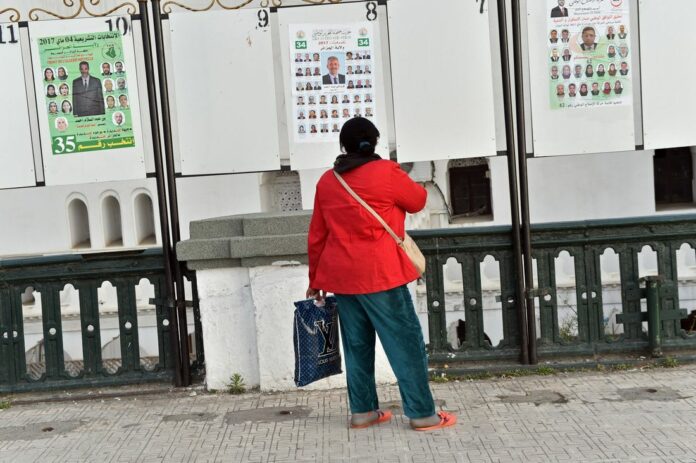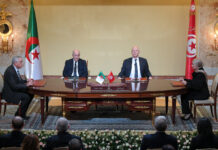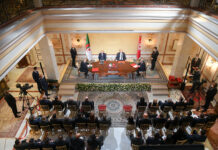June 10, 2021
The early legislative elections that the Algerians are holding on Saturday, June 12th, aim to give the regime new legitimacy, and come amid rejection by part of the opposition and the anti-regime movement, and fears of voters’ reluctance.
It is noteworthy that 1,483 lists participate in these elections, including 646 party lists and 837 lists of free candidates.
Algeria Elects
The voting process in the Algerian legislative elections began on Thursday, June 10, 2021, at the Algerian consulate in Tunisia, two days before its launch in Algeria, to enable the Algerian community to vote and choose their representatives in the House of Representatives.
In turn, the voting process began in 34 mobile offices in Algeria distributed over the various isolated and border regions in the states of Ouargla, Tindouf, Tamanrasset, Illizi, Djanet and Ain Ghezzam, with the aim of enabling about 33,890 voters registered in the electoral lists to perform their electoral duty in the best conditions.
The electoral law allows for voting to begin through these mobile offices, three days before the polling day.
Voting continues for the Algerian community abroad, through the various Algerian consulates located around the world.
Algerian Expectations
After the Corona pandemic, workers in the health sector are calling for reforming the health system by improving their working conditions and improving the quality of service provided to patients, and workers are demanding the amendment of laws that guarantee their rights and enable them to obtain permanent work contracts.
Concerning the file of women’s rights, women are calling for the family law to be amended and to protect them against violence and support them in the field of work.
Journalists also aspire to enact laws regulating the media sector in the country, according to what was stated in “majallat almourasil” (the Reporter Magazine) program on France 24 channel.
Fears of Voters’ Reluctance
The participation rate is the main bet, after the two previous elections (the presidential election in 2019 and the constitutional referendum in 2020) witnessed unprecedented abstentions of 60% and 76%, respectively.
Opinions also met that Algerians do not show much interest in the candidates’ promises in light of the economic crisis and the continuation of the general closure due to the Corona virus pandemic for more than a year, and analysts find it difficult to read the outcome of the political situation in the country amid concern and fears among Algerians about the return of the “one-party” dominance.
Divisions of the Political Class
Hirak activists refuse to participate in the current legislative elections, and demand “fundamental changes in the political system and the ruling elite, and the withdrawal of the army from political life” while the government and its supporters assert that the purpose of these elections is to achieve stability in the country, return life to normal, and help the economy recover.
The candidate for the National Liberation Front, Dr. Ali Rabij, believes that the elections will take place smoothly and easily, and that nothing will affect them, but he expected fights in some places.
The licensed Islamic parties, as well, decided to participate in the ballot for what they called “contributing to the estrangement and the desired change.”
The French-language daily El Watan, summarized the election campaign, which began on May 20, as “active in the virtual space”, but “it was somewhat shy in the public space.”
Algeria is holding its seventh parliamentary elections in thirty years, after the National Liberation Front (FLN) has dominated party work since independence in 1962.











